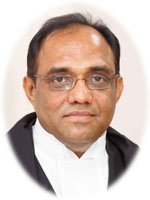The Kerala High Court reiterated that mentally-challenged persons were not competent to testify in terms of Section 118 of the Indian Evidence Act if they were unable to comprehend the questions posed to them. The Single Judge Bench of Justice PB Suresh Kumar gave the benefit of the doubt to the accused on finding that there was no other evidence to substantiate the testimony of the mentally challenged woman who was allegedly raped.

Case background
The woman had accused her brother’s father-in-law of sexual assault and rape, offences under Sections 376(2)(f) and 376(2)(l) of the Penal Code. An Additional Assistant Sessions Court in Palakkad district had confirmed the guilt of the accused and had accordingly sentenced him to imprisonment for ten years imposed a fine of Rs.1 lakh, and a further rigorous imprisonment of one year upon default on the fine imposed.
In the appeal before the Kerala High Court, the accused challenged the evidentiary value of a mentally-challenged rape victim’s testimony in court. The counsel representing the accused argued that the deposition of the complainant-victim could not be relied-upon by reason of a mental incapacity.
Advocates T M Muhamed Hafees and K Anand appeared for the accused while Special Government Pleader Ambika Devi S and Senior Public Prosecutor Pushpalatha MK represented the State.
Interpreting the explanation, the High Court expounded:
“In short, the competency of a person to give evidence in a proceedings is to be assessed by the court by considering the question as to whether the person is prevented from understanding the questions put to him or from giving rational answers to those questions, by reason of tender years, extreme old age, disease, whether of body or mind, or any other cause of the same kind.”
The Court allowed the appeal for two reasons. Firstly, the victim was not in a position to comprehend the questions posed to her during cross-examination. Secondly, there were loopholes in the evidence tendered by the prosecution.
The Court found loopholes in the testimony of a Counsellor and in a report of the medical examination. The Court stated that the latter had not listed the medical examiner’s reasons for drawing such a conclusion, as was required under the Criminal Procedure Code.
The appeal was allowed, with the Court stating that the accused was entitled to the benefit of doubt.

